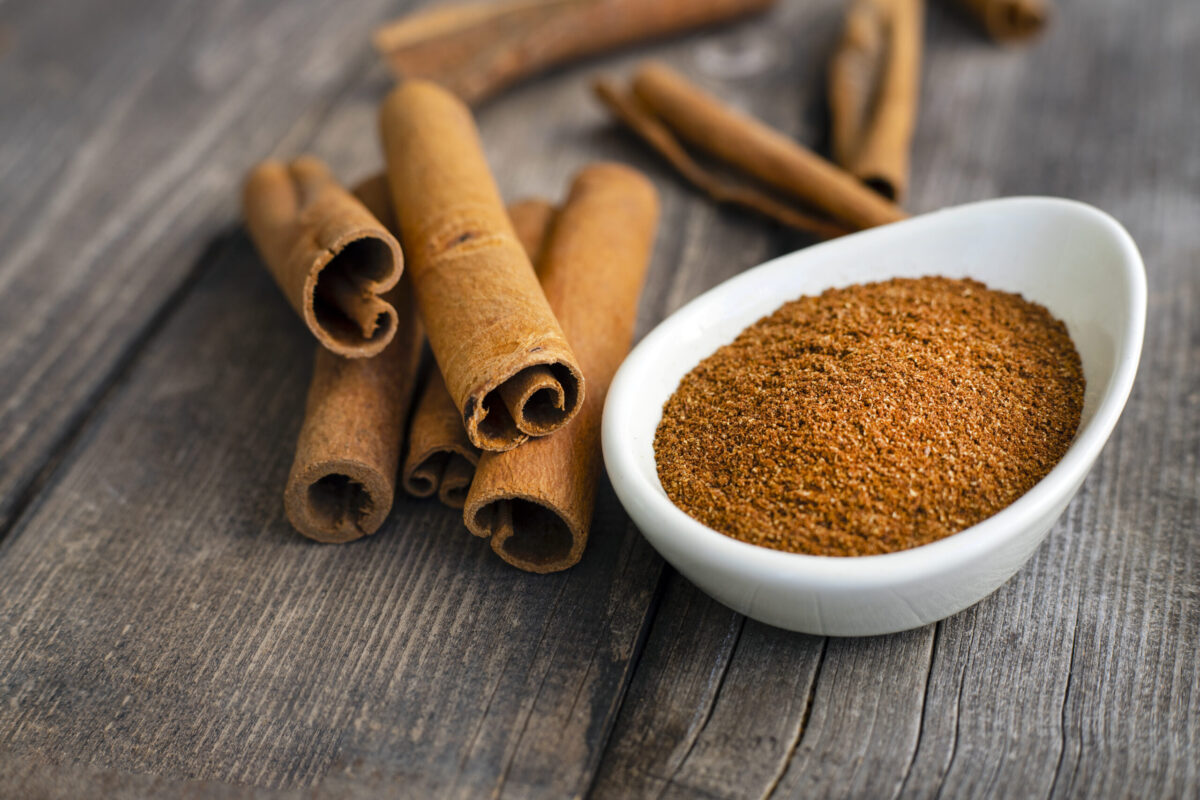A hint of cinnamon can often make so many good foods taste even better.
But cinnamon doesn’t just taste good. It’s also good for you, according to Leslie Cornett, a registered dietitian-nutritionist at BlueCross BlueShield of Tennessee.
Why cinnamon is good for you
Leslie Cornett: Cinnamon is a great spice to flavor a number of dishes, both sweet and savory, as well as beverages. But it’s also one of the “superfoods” of spices.
A few reasons to love cinnamon for its health benefits:
- It may help reduce your blood sugar levels. Cinnamon is known for its hypoglycemic effects—that is, it can help reduce blood sugar levels in people with type 2 diabetes.
- It may help improve insulin sensitivity. Some people develop a resistance to the hormone insulin, which helps move sugar from their bloodstream into their cells. This can lead to prediabetes—and eventually to diabetes. Cinnamon, however, seems to combat insulin resistance.
- It has antioxidants. Cinnamon is rich in antioxidants, which protects your body from damage to your cells caused by free radicals.
- It has anti-inflammatory properties. Cinnamon is also associated with lower levels of proteins causing inflammation in your body. If you have chronic inflammation in your body, over time that can raise your risk of some age-related diseases, like atherosclerosis, diabetes, high blood pressure, and cancer.
- It may help lower your cholesterol levels. Research shows that cinnamon can help bring down your overall cholesterol levels, as well as your low-density lipoprotein (LDL) or “bad” cholesterol levels.
Researchers are continuing to investigate other potential benefits, too. So we may find out that cinnamon is even more super than we already know.
How to incorporate more cinnamon into your diet
Leslie Cornett: You may already have a favorite way to enjoy cinnamon. But the possibilities for including cinnamon in your diet are almost endless. A few of my favorite ideas:
- Breakfast: Add some cinnamon to your favorite breakfast foods, such as oatmeal, cereal, toast, fresh fruit, waffles or yogurt.
- Beverages: Sweeten your coffee, hot tea, cider, or smoothie with cinnamon.
- Desserts: Cinnamon can be an ingredient or a topping for frozen yogurt, frozen banana ice cream, rice pudding, grilled bananas, or baked apples.
But don’t stop there. Cinnamon can be a great addition to savory dishes like soups, stews, and even ham, chicken and beef dishes. It can be added to chili, spaghetti sauce, marinades, curries, roasted chickpeas, and roasted vegetables. Use your imagination!
And while you’re trying cinnamon, don’t forget about other great spices that you could try, such as ginger, turmeric, and garlic. All spices can be used in various dishes, and you’re really only limited by your own preferences. Do a quick online search for your favorite spice (or combination of spices) and you’ll be amazed at the numerous recipes to try.
Can you have too much cinnamon?
You can have too much of just about anything, including cinnamon. And having too much might have some negative consequences. For example, if you enjoy too much cinnamon, it might cause your blood sugar levels to drop too low, especially if you’re already taking medication to lower your blood sugar.
Also, cinnamon can interact with some medications. For example, if you take any other medications that affect your liver or you already have a liver condition, you might want to avoid consuming large amounts of cinnamon. That’s because a substance in cinnamon called coumarin can cause liver damage.
A good rule of thumb: talk to your health care provider before you take any herbs or supplements or change up your diet.
More from Leslie Cornett on WellTuned.
Get more information about specific health terms, topics and conditions to better manage your health on bcbst.com. BlueCross BlueShield of Tennessee members can access wellness-related discounts on fitness products, gym memberships, healthy eating and more through Blue365®. BCBST members can also find tools and resources to help improve health and well-being by logging into BlueAccess and going to the Managing Your Health tab.





